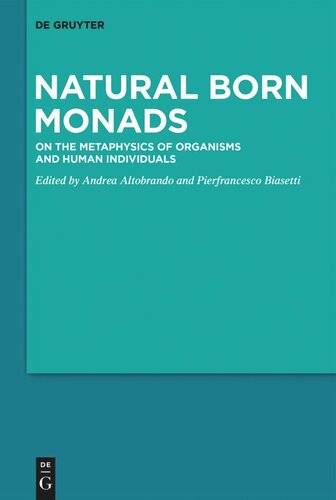

Most ebook files are in PDF format, so you can easily read them using various software such as Foxit Reader or directly on the Google Chrome browser.
Some ebook files are released by publishers in other formats such as .awz, .mobi, .epub, .fb2, etc. You may need to install specific software to read these formats on mobile/PC, such as Calibre.
Please read the tutorial at this link: https://ebookbell.com/faq
We offer FREE conversion to the popular formats you request; however, this may take some time. Therefore, right after payment, please email us, and we will try to provide the service as quickly as possible.
For some exceptional file formats or broken links (if any), please refrain from opening any disputes. Instead, email us first, and we will try to assist within a maximum of 6 hours.
EbookBell Team

4.4
22 reviewsWe are still looking for a satisfactory definition of what makes an individual being a human individual. The understanding of human beings in terms of organism does not seem to be satisfactory, because of its reductionistic flavor. It satisfies our need for autonomy and benefits our lives thanks to its medical applications, but it disappoints our needs for conscious and free, self-determination. For similar reasons, i.e. because of its anti-libertarian tone, an organicistic understanding of the relationship between individual and society has also been rejected, although no truly satisfactory alternative for harmonizing individual and social wellness has been put forth. Thus, a reassessment of the very concepts of individual and organism is needed.
In this book, the authors present a specific line of thought which started with Leibniz' concept of monad in 17th century, continued through Kant and Hegel, and as a result reached the first Eastern country to attempt to assimilate, as well as confront, with Western philosophy and sciences, i.e. Japan. The line of thought we are tracing has gone on to become one the main voices in current debates in the philosophy of biology, as well as philosophical anthropology, and social philosophy.
As a whole, the volume offers a both historical, and systematic account of one specific understanding of individuals and their environment, which tries to put together its natural embedding, as well as its dialectical nature. Such a historical, systematic map will also allow to better evaluate how life sciences impact our view of our individual lives, of human activities, of institutions, politics, and, finally, of humankind in general.